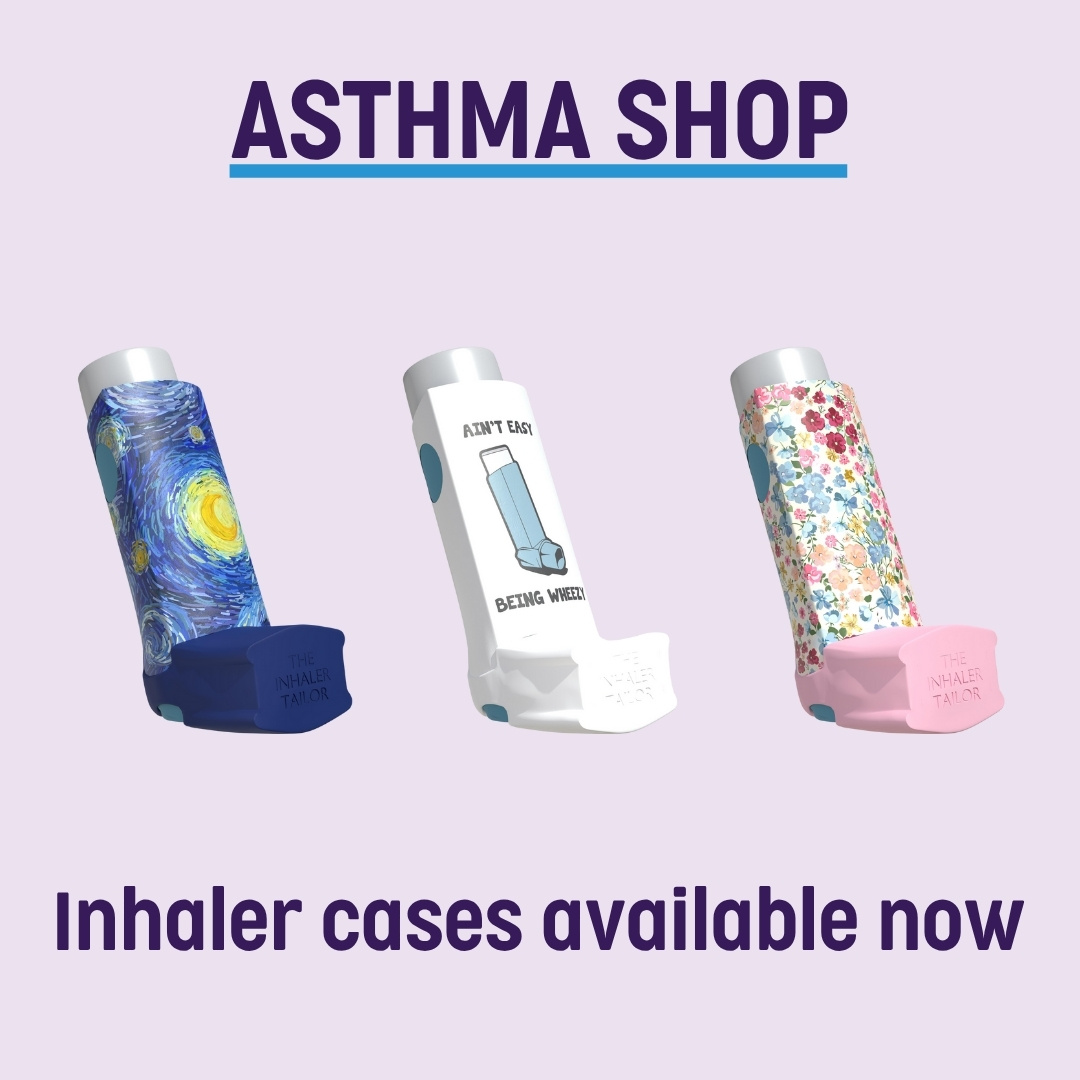
- New data reveals concerning results that people with asthma are being left feeling unsupported in the workplace with a half (1 in 2) feeling their workplace does not view asthma as a valid reason to take sick leave or feeling unsure
- The data reveals a disconnect between public perception and the attitudes of those with asthma with more than a quarter of people with asthma uncomfortable using their puffer in public despite it being lifesaving or rescue medication.
- This Asthma Week (1-7 Sept), Asthma Australia is encouraging workplaces to be more transparent about asthma in leave policies, and for all Australians to help remove the stigma from asthma by learning more.
New insights released to align with Asthma Week (1 -7 September) reveal despite one in nine Australians living with asthma, stigma around the condition is having a direct effect on their health at work and in general.
Despite Australia having one of the highest prevalence’s of asthma in the world, concerningly, there is a lot of uncertainty from Australian workers around whether or not asthma is a valid illness entitled to sick leave.
In fact, the new survey revealed more than half (50% or 1 in 2) of people with asthma feel their workplace does not view asthma as a valid reason to take sick leave or are left feeling unsure.
Australians who work part time were more likely to respond that they were unsure compared to people who work full time.
Asthma Australia CEO Michele Goldman said the rate of asthma is so high in Australia that workplaces needed to act on these results.
“Adults spend a vast majority of time at work, and this is where a lot of stigma and health issues can take place,” Ms Goldman said. “Asthma is a diagnosed health condition for 2.7 million people, and takes the life of a person each day, it’s a workplace responsibility.”
Respiratory physician Dr John Blakey said in relation to stigma in the workplace, “Hiding the condition might be literally not telling an employer they have it, but it can also manifest as coming to work when unwell – being present but less productive for fear of being labelled in your absence.”
This shows workplaces are indeed a hot spot for stigmatised attitudes towards workers with asthma.
Asthma Australia says as a first step, workplaces need to be more transparent about asthma in their sick leave policies, to better support employees which will reduce stigma.
There is a lack of research and standardised workplace policies for managing and supporting asthma in the workplace, with some people with asthma feeling unsupported, self-conscious or insecure at work1.
The survey found a disconnect between public perception and the attitudes of those with asthma. Despite most Australians surveyed (95%) being supportive of someone using their asthma puffer in public, more than a quarter (26%) of people with asthma admit they would feel uncomfortable doing so – despite it being the lifesaving medication they need to breathe.
The COVID-19 pandemic has intensified stigma around the asthma cough. For many Australians who live with the chronic condition, the stigma surrounding asthma and the associated cough is leaving them feeling ashamed and embarrassed, which is no surprise as four in ten (43%) of Australians surveyed admitting if they saw someone coughing, they would assume they are contagious. This is reflected in an Asthma Australia COVID-19 survey which found most people with asthma reported feeling stigmatised by their asthma symptoms (cough) appearing like COVID-19.
Professor Bandana Saini from University of Sydney and research leader at Woolcock Institute of Medical Research said stigma comes from what people think, and what you think people are thinking about you.
“This can have a direct impact on how people treat their condition in the short term and in the long term,” Prof. Saini said. “Asthma relies on self-management, so how they feel about it has a direct effect on that.”
“In Australia there’s no getting away from asthma, so many people have it that we all need to have a certain level of literacy about it. That includes things like policies and systems around supporting people with asthma in our workplaces and community. But it’s also everyone’s responsibility to know about it. People around us have asthma, that’s just a fact. At the end of the day it costs all of us if we don’t improve things but it costs those people the most,” she said.
This Asthma Week, Asthma Australia is encouraging Australians to support their friends, family and co-workers with asthma by taking the time to ask how the lung condition affects them, and to help remove the stigma through better support and understanding.
To find out more visit www.asthmaweek.org.au.
About Asthma Australia
Asthma Australia is a for-purpose, consumer organisation with a history of improving the lives of people with asthma. We operate across New South Wales, Victoria, Queensland, Tasmania, South Australia and the Australian Capital Territory to deliver evidence-based prevention and health strategies to more than half a million people each year. Asthma Australia works in partnership with the Asthma Foundations of Western Australia and the Northern Territory. We work with people with asthma, their family and friends, health professionals, researchers and governments. We find the best treatments and practices to make sure life with asthma is the best it can be.
About the Research & Citations
The online survey was commissioned by Asthma Australia and conducted by YouGov between 4 – 8 August 2022. The sample was comprised of a nationally representative sample of n=1,030 Australians aged 18+. The data has been weighted by age, gender and region to reflect the latest ABS population estimates.
1: Denise H. Zhao, Janet M.Y. Cheung, Lorraine Smith & Bandana Saini (2018) Exploring asthma in the workplace: A triangulation of perspectives from management, employees and people with asthma, Journal of Asthma, 55:8, 859-867, DOI: 10.1080/02770903.2017.1369991





 1800 278 462
1800 278 462



